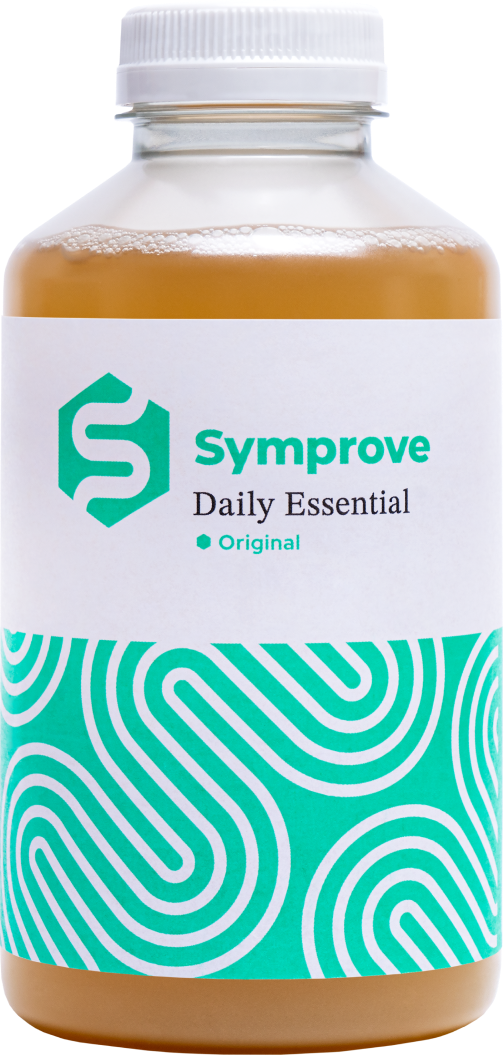Research on the gut microbiome and probiotics has continued to steadily grow over the last 10 years, with almost 10,000 and 6,000 papers respectively published in the last year alone. This is in stark contrast to 20 years ago when there were no papers that mentioned the human gut microbiome and between 2003 and 2004 only 973 papers on probiotics were published; a fraction of today’s number.
Exciting areas of interest this year, with a high number of publications, include the following:
Gut-brain axis and its role in mental health and neurological disorders
Research in the last few years has described the link between the microbiome and various mood disorders such as depression and anxiety (1) and studies have suggested that manipulating this through treatments such as probiotics or dietary modification may be beneficial (2, 3). In addition, there has been increasing evidence that suggests the microbiome may play a role in the development of various neurological disorders such as Alzheimer's disease, multiple sclerosis and Parkinson's disease (4). Publications this year have built on this knowledge further and we've selected a few highlights.
Association between gut microbiota and psychiatric disorders: a systematic review
This review found that those with depression had lower microbial diversity compared to healthy controls. It also highlighted a clear link between stress and the gut microbiota, with stress impacting on bacterial diversity and the microbiota in turn influencing stress levels. Dysbiosis was found in a number of psychiatric disorders including eating disorders, depression and psychotic episodes. This builds on our knowledge of the gut-brain axis and research in this area is likely to influence our treatment of these conditions in the future.
Systematic review of probiotics as an adjuvant treatment for psychiatric disorders
The results of this review shows the exciting potential of probiotics in contributing to the treatment of depression and anxiety. The studies included showed that the use of adjuvant probiotic treatment with selective serotonin reuptake inhibitors (SSRIs) was better at treating symptoms compared to SSRI treatment alone.
Probiotic supplements are effective in people with cognitive impairment: a meta-analysis of randomized controlled trials
Ten studies were included in this meta-analysis which explored the effect of probiotics in the treatment of cognitive impairment. The results showed that probiotic supplementation significantly promoted cognitive function, especially in those who had Alzheimer’s disease. Further studies that look at the optimal duration of probiotic supplementation are needed.
Gut-brain axis and its role in obesity
The levels of obesity in England have reflected global increases and currently two thirds of the adult population are overweight or obese (5, 6). Obesity costs the NHS around £6.5 billion a year, so it is a key priority to find ways in which we can safely and effectively treat this disease (7). The cause of obesity is multifactorial, however recent research has suggested that the microbiome may play a role through various mechanisms (8). Publications this year have explored some of these various mechanisms and whether we can reduce some of the co-morbidities of obesity through the use of probiotics.
The effect of probiotic and synbiotic supplementation on appetite-regulating hormones and desire to eat: A systematic review and meta-analysis of clinical trials
This review looked at the impact of probiotics and synbiotics on adiponectin and leptin. Adiponectin appears to be anti-inflammatory and increase insulin sensitivity and leptin decreases the feeling of fullness, so the ratio of these is thought to play a role in the development of obesity and its associated conditions (9). Data from the 26 studies included in the review showed a significant decrease in leptin and an increase in adiponectin with probiotic/symbiotic supplementation.
Effects of probiotics on intermediate cardiovascular outcomes in patients with overweight or obesity: A systematic review and meta-analysis
This review found that probiotics reduced body mass index (BMI), weight, and low-density lipoprotein (LDL) levels. The evidence included, however, was of moderate to low quality and the difference the probiotics made was small and may not have enough of an affect if used clinically. The authors concluded that further large high quality studies are needed to look at the long-term effects of probiotic supplementation in this cohort.
Gut-skin axis
It is thought that the microbiome plays a role in a number of skin conditions, with evidence of an altered gut microbiome accompanying many of these (10). Atopic dermatitis is one of the most common chronic inflammatory skin diseases and research this year has looked into whether probiotics may help in the treatment of this.
Effects of probiotic supplementation in adult with atopic dermatitis: a systematic review with meta-analysis
This review looked at 9 papers that used probiotics in the treatment of the condition. Results suggested that strain specific probiotics may be helpful to those with moderate to severe atopic dermatitis; with L. Salivarius and L. acidophilus having the most impact.
In conclusion
Research in the area of probiotics and the microbiome is ever growing and trials have shown that the use of these may be beneficial in a range of conditions. Growing evidence in the area of the gut-brain axis and gut skin axis is particularly exciting and treatment options as a result of this research could potentially have a large clinical impact in the future.
References
1. Clapp M, Aurora N, Herrera L, Bhatia M, Wilen E, Wakefield S. Gut microbiota's effect on mental health: The gut-brain axis. Clin Pract. 2017;7(4):987.
2. Yang B, Wei J, Ju P, Chen J. Effects of regulating intestinal microbiota on anxiety symptoms: A systematic review. Gen Psychiatr. 2019;32(2):e100056.
3. Taylor AM, Holscher HD. A review of dietary and microbial connections to depression, anxiety, and stress. Nutr Neurosci. 2020;23(3):237-50.
4. Cryan JF, O'Riordan KJ, Sandhu K, Peterson V, Dinan TG. The gut microbiome in neurological disorders. Lancet Neurol. 2020;19(2):179-94.
5. Digital N. Health Survey for England, 2021: Data tables 2022 [Available from: https://digital.nhs.uk/data-and-information/publications/statistical/health-survey-for-england/2021/health-survey-for-england-2021-data-tables.
6. NHS. NHS Long Term Plan 2019 [Available from: https://www.longtermplan.nhs.uk/online-version/.
7. Care DoHaS. Government plans to tackle obesity in England 2023 [Available from: https://healthmedia.blog.gov.uk/2023/06/07/government-plans-to-tackle-obesity-in-england/.
8. Sarmiento-Andrade Y, Suárez R, Quintero B, Garrochamba K, Chapela SP. Gut microbiota and obesity: New insights. Front Nutr. 2022;9:1018212.
9. Liao PJ, Ting MK, Wu IW, Chen SW, Yang NI, Hsu KH. Higher Leptin-to-Adiponectin Ratio Strengthens the Association Between Body Measurements and Occurrence of Type 2 Diabetes Mellitus. Front Public Health. 2021;9:678681.
10. De Pessemier B, Grine L, Debaere M, Maes A, Paetzold B, Callewaert C. Gut-Skin Axis: Current Knowledge of the Interrelationship between Microbial Dysbiosis and Skin Conditions. Microorganisms. 2021;9(2).



